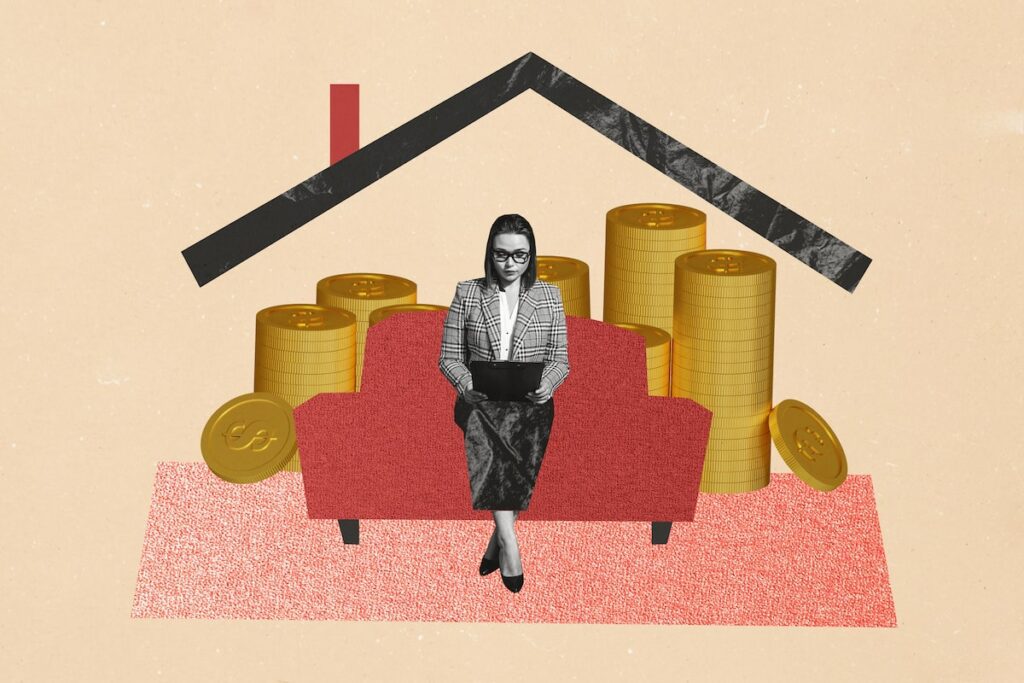As high earners have the means, renting may provide the option of living in a more desirable neighbourhood.Deagreez/iStockPhoto / Getty Images
Some high earners have embraced renting for the long haul and are eschewing home ownership. But that thinking among high-earner, not-rich-yet (HENRY) clients often creates clashes with their parents.
Cody Weber, owner and certified financial planner at Basic Financial Services Inc. in St. Catharines, Ont., says some of his younger HENRY clients feel familial pressure to buy property as soon as possible.
He notes that their parents often mention security as the main reason they want their kids to own, as they would have total autonomy and avoid substantial rent increases or “renovictions,” where tenants are evicted by a landlord undertaking major renovations.
To help convince their children to buy a home, parents may even offer money for a down payment, but Mr. Weber says these HENRYs aren’t budging.
“They view rent differently … as simply another payment,” he says. “They see rents and utilities as the maximum they’ll pay every month. They see the mortgage as the minimum, with property taxes and maintenance costs to still pay.”
Some are still building their careers, and job-hopping accordingly, Mr. Weber adds. Renters can get out of a lease and move more easily.
He says other HENRYs look at their homeowner peers saddled with repairs and less money to spend. They also see these friends struggling with long commute times as an affordable house is often farther away from work, in less desirable neighbourhoods and school districts.
As HENRYs have the means, renting may provide the option of living in a better location for a set period of time, says Anthony Rasotto, founder and chief executive officer at ARC Wealth in Vancouver. As a younger millennial, Mr. Rasotto is in no hurry to buy. He works virtually, freeing him to reside in different locations without worry about closing costs, land transfer taxes and legal fees.
Benjamin Felix, chief investment officer at PWL Capital Inc. in Ottawa, was an avid renter for years and even had the stressful experience of being kicked out of his place. He advises HENRY renters to practice more due diligence on their landlord.
“After that experience, we rented from professional landlords who owned many properties and had professional third-party property management,” he says. “We interviewed the property managers as well and never had an issue since.”
Mr. Felix now owns a house in a rural area that his family loves. While he prefers renting, the lack of housing stock made it difficult.
“We didn’t have a choice given where we wanted to live,” he says. “Nice single-family homes to rent were tough to find. So that made the decision for us.”
Renting in retirement
HENRYs who plan to rent for life want advice on how they can retire comfortably, Mr. Rasotto says. They know that homeowners’ mortgage payments will end eventually, giving them an asset to draw on, if necessary, while rent payments continue in perpetuity.
Mr. Rasotto emphasizes the need for renters to invest the money saved from not paying for a home to build a healthy retirement portfolio. They can start investing with the amount that would have been their down payment and consistently add to that each year.
However, parents rarely offer to help financially with investment portfolios versus buying a home or paying for a wedding.
“Will those funds still come if they’re going to rent? Probably not, at least I’ve never experienced it,” Mr. Rasotto says.
Mr. Felix has researched the benefits of renting versus owning an apartment or condo for years. “For individual houses, there’s not the same quality of data available,” he says.
His latest findings released last month used 20 years of data in 12 cities nationwide, including Toronto and Vancouver. He found no substantial difference in the ultimate financial outcomes for renters and owners.
“There were some cities where renters were better off and some where owners were better off,” he says.
He points to Toronto as a city where it was worse to own an apartment or condo than to rent over the past 20 years, due to the recent fall in home prices and the resilient stock market.
In Mr. Felix’s model, renters took the money they would have spent on a home and invested it in stocks. The equities were strictly in registered investments, such as tax-free savings accounts and registered retirement savings plans. Renters also saved the difference between monthly rent and mortgage payments. The owners, in comparison, used their down payment to purchase an apartment or condo.
Mr. Felix says the case for HENRYs to rent is strong, as, not being rich yet, they likely have the contribution room to max out their registered accounts.
“But if they don’t have that room, the case for owning gets a lot stronger because of the tax properties of an owned home,” Mr. Felix says, referring to the fact that a person’s principal residence can be sold tax-free.

